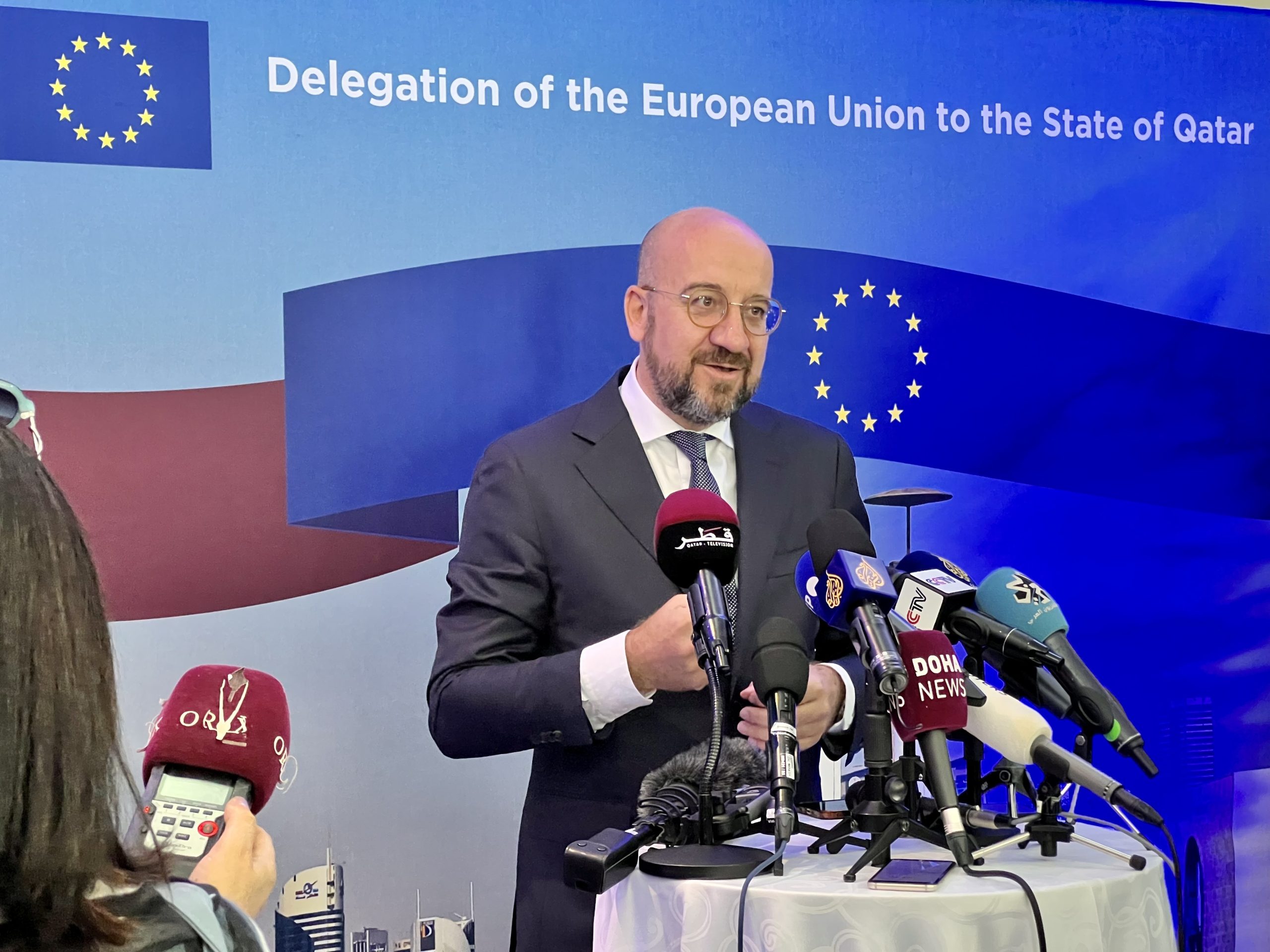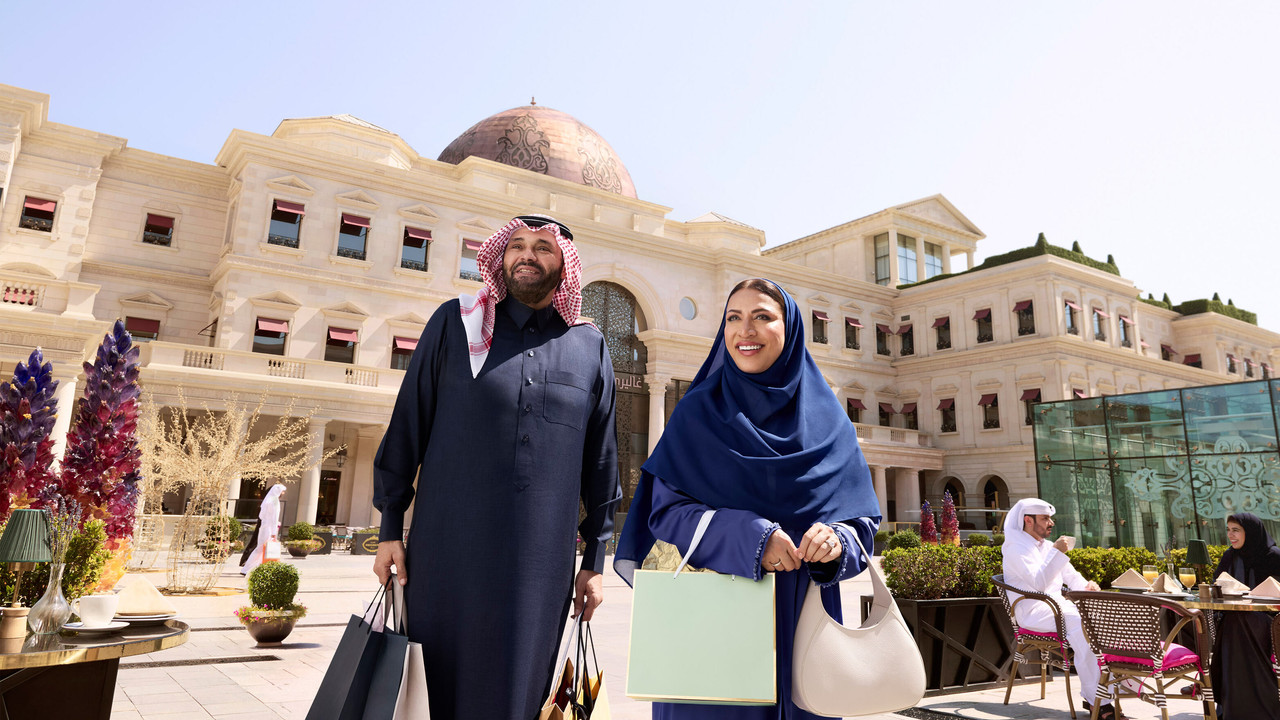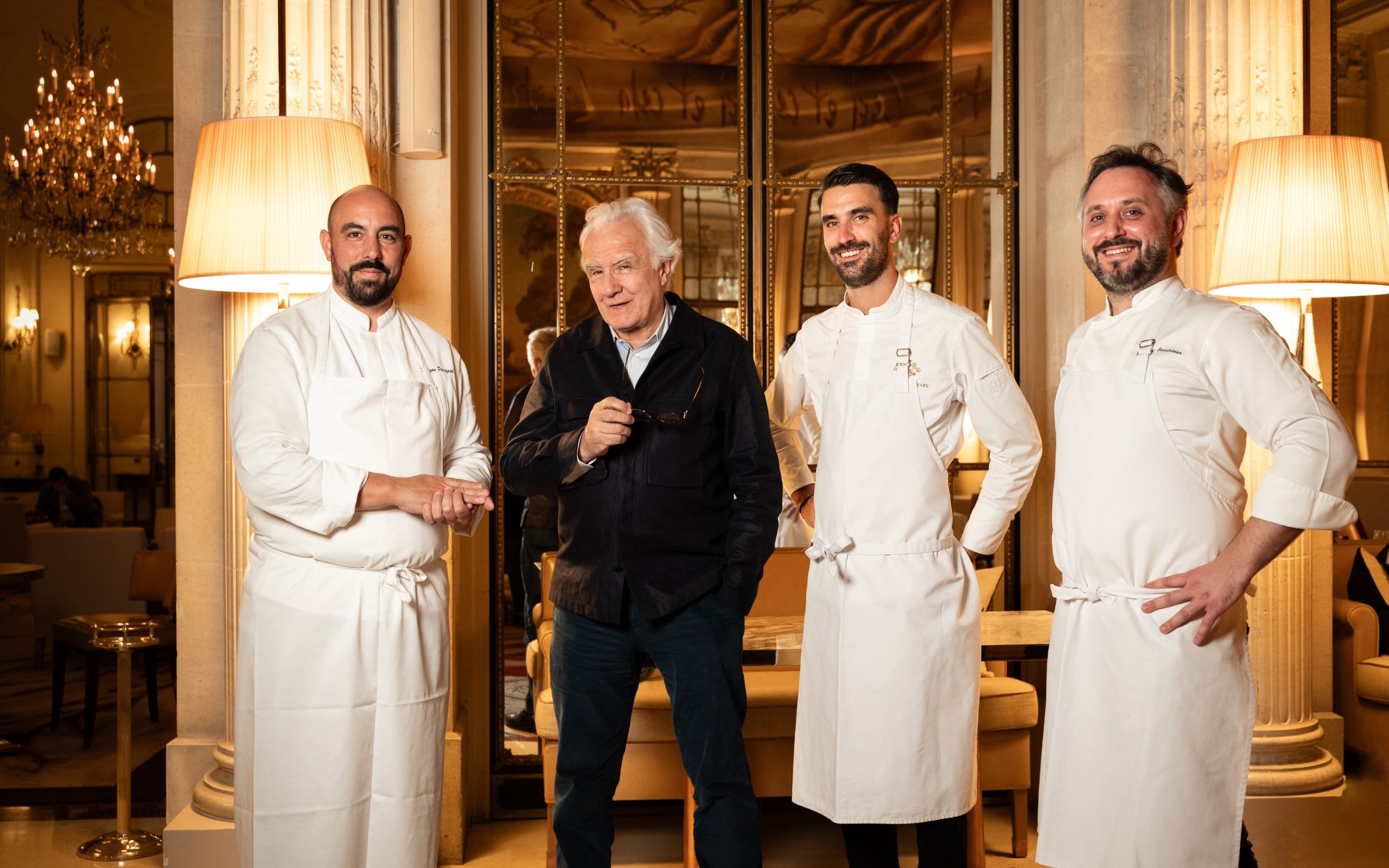EU regulators closed their 2018 antitrust investigation into QatarEnergy in April amid its energy insecurity.
The Office of the European Union Mission was inaugurated in Qatar on Wednesday by the President of the European Council Charles Michel.
Michel is on an official visit to the Gulf nation, where has met with several high-level officials to discuss and review regional and international sticking points including the ongoing energy crisis, Russia-Ukraine crisis, in addition to a number of other important issues.
During his brief press conference at the new EU mission office, the European diplomat noted that his visit is a testament to EU’s “political will” to strengthen ties with Doha.
Addressing global challenges such as the energy sector and the economic development, Michel asserted Europe’s relation with Qatar is a crucial “leverage to overcome together those extremely difficult challenges.”
Earlier on Wednesday, the official also met with Qatar’s Amir Sheikh Tamim bin Hamad Al Thani as well as political authorities to hold “political discussions.”
Disclosing few details regarding his meeting with top Qatari officials, Michel said the two sides are making progress with the visa waiver policy. He further expressed his confidence that in the following weeks, major decisions will be made.
Speaking on the significance of an EU Mission in Qatar and the importance of close cooperation, Michel noted that the mutual respect and understanding shared between the bloc and Doha paves a way for both sides to have a better grip on the security challenges especially in the region.
Both Qatar and the EU are seen as lead mediators in indirect talks between Tehran and Washington regarding the revival of the landmark 2015 nuclear deal, formally known as the Joint Comprehensive Plan of Action.
Two-day Talks between Iran and the US were held in Qatar in late June with heavy EU mediation led by deputy foreign policy chief, Enrique Mora.
Michel’s visit to Qatar comes as an ongoing energy crisis plagues the world further fuelled by the Russian invasion of Ukraine. However, many politicians argue the energy crisis has been ongoing since long before the invasion in February.
Qatar’s Energy Minister Saad Sherida Al Kaabi said western countries including the United Kingdom are facing the consequences for their to drive eliminate carbon emissions in a bid to combat climate change by “demonising oil and gas companies.”
The energy minister noted that the recent surge in oil and energy prices in Europe and beyond is not entirely as a result of the Russian and Ukrainian crisis but rather could be traced back many years before the event.
“It’s definitely a deeper issue,” he said while addressing the steady decrease of investments in gas production over the past few years as Europe pushed a move towards achieving net-zero through renewable sources.
“There was a build up of countries pushing for the [energy] transition in a hard way. [They pushed for] net-zero, moving to renewables, doing away with fossil fuels and demonising the oil and gas companies, [calling them] the bad guys. And [as a result] you don’t have enough investment in the oil and gas sector,” Al Kaabi said in an interview with Sky News.
Michel’s visit also comes as EU countries continue to make move towards ending their reliance on Russian gas following Moscow’s invasion.
European governments are keen on securing energy cooperation with the oil-rich Gulf country to avoid a power cost surge as Russian flows plummet.
Europe receives 40% of its gas supplies from Moscow and almost a third of the shipments pass through Ukraine.
State-owned QatarEnergy, leading the world’s largest liquified natural gas project (LNG), has been in talks with various European buyers for months, however no public announcement of any new agreements have been made.
As Moscow declared plans to keep its main gas pipeline closed off to Europe, European authorities, who are already fighting to control the skyrocketing gas prices, are now concerned about winter gas shortages.
The majority of the existing volumes of Qatari natural gas are secured by long-term agreements, primarily with Asian buyers, which Qatar has maintained it will uphold.
This recent sentiment came in a Singapore-based interview with Qatar’s Foreign Minister Sheikh Mohammed bin Abdulrahman Al Thani during his Asia tour last month.
In the interview, Sheikh Mohammed highlighted Qatar’s predominant dependence on long-term contracts with countries, “in fact we have a great partnership with Asia and Europe,” adding that “we have seen that pricing stability is important to continue this partnership and solidify it.”
“We have been a very reliable partner to all our buyers […] and we have have seen that the energy crisis is growing in the entire world [and still] we supplied to Asia and Europe and we didn’t give priority to one over the other,” he added.
“We just stick to our contracts.”
This also comes as the country’s energy minister confirmed last month that QatarEnergy is in negotiations with Asian and European buyers for its LNG.
“We’re talking to everybody that wants to buy gas and stops in Qatar to have a discussion,” Al Kaabi said.
“When we’re done [negotiating], we sign”.







